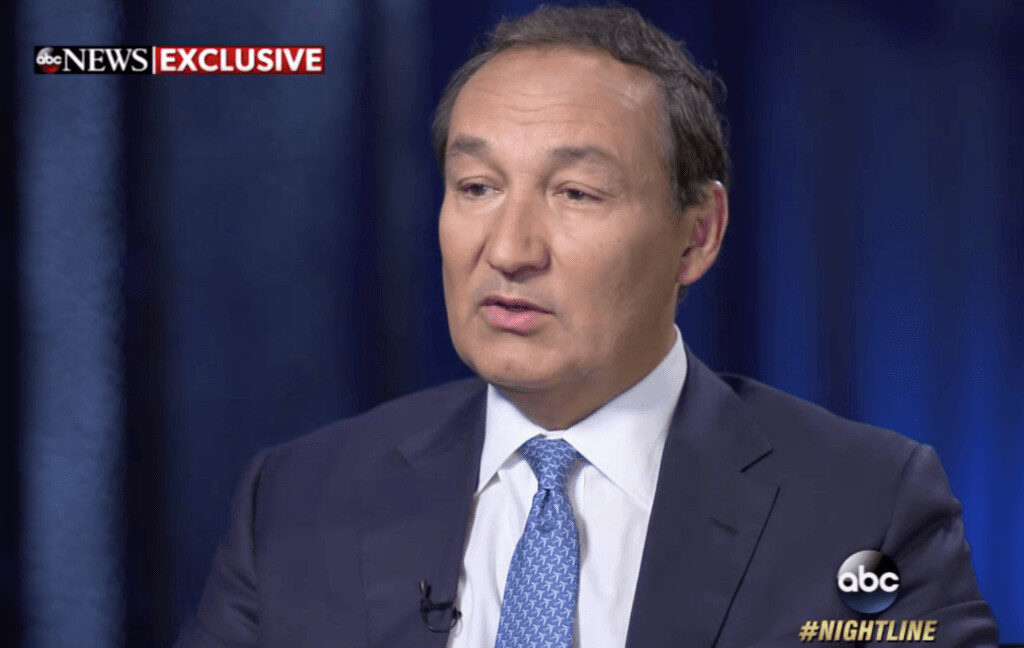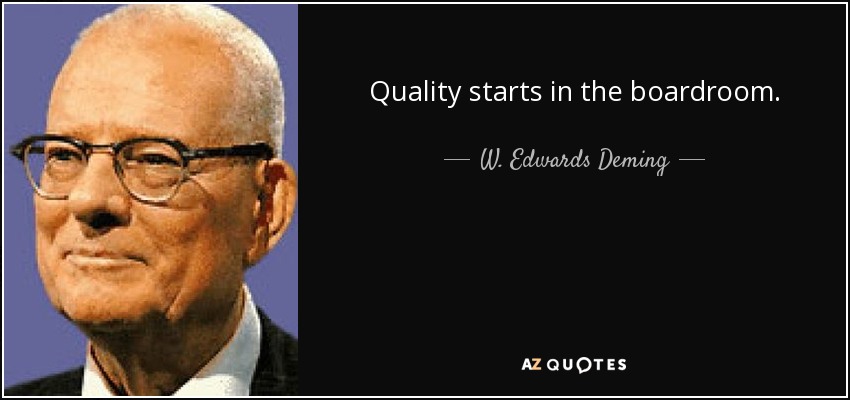Following up the United Airlines Flight 3411 mess, CEO Oscar Munoz has been back in the news, talking about a number of new policies and systemic changes the airline is making to prevent a reoccurrence of the awful situation where airport police dragged Dr. David Dao off of the plane to make room for an airline employee to fly.
Hear Mark read this post — subscribe to Lean Blog Audio
While the initial public response from United and Munoz was very lacking, I'll give the CEO credit for taking responsibility for the system. Munoz pointed out that employees followed procedures and, therefore, the procedures had to change (rather than blaming employees). That's part of, I'd say, a leader's responsibility for the system, and to not put employees in a bad position.
Munoz, in this ABC News interview, said:
“It was a system failure,” Munoz said. “We have not provided our frontline supervisors and managers and individuals with the proper procedures that would allow them to use their common sense.
“They all have an incredible amount of common sense, and this issue could have been solved by that,” he added. “This is on me. I have to fix that, and I think that's something we can do.”

I've heard Darril Wilburn, a former Toyota guy, say that it's a leader's responsibility to provide a system in which people can be successful.
As Dr. Deming used to teach, executives are responsible for the system. Employees can (and should) help improve their work, but that work is done in the context of a larger system.

The United board hired Munoz in 2015. He can't be fully responsible for the company culture, since he hasn't been there that long… but he can be responsible (has to be) for changing that culture. He didn't create it, but he owns it now.
Munoz implies that employees were not allowed to use common sense. That's a system problem, and realizing that is better than blaming employees for not having common sense. What got in the way of employees doing the right things? Systems and policies.
In my original post from the day of the incident, I was encouraging United to look at systemic root causes of the incident and to find policies and procedures that could be changed, instead of finding people to blame and punish. I'm happy to see United took that approach.
New Policies and Changes
Here is a list of new policies, as announced by United. Some of them are listed below, with my comments are in bold italics.
- Limit use of law enforcement to safety and security issues only.
- Munoz talked about that in the ABC interview and I agree that Dr. Dao refusing to give up his seat was not a “safety or security” issue.
- Not require customers seated on the plane to give up their seat involuntarily unless safety or security is at risk.
- Reduce the amount of overbooking.
- Not forcing passengers off the plane, along with a reduction in overbooking (3411 was not “overbooked,” technically speaking) will help prevent situations like the one from last month. Employees, of course, don't create the policies on overbooking.
- Increase customer compensation incentives for voluntary denied boarding up to $10,000.
- I bet four passengers would have gotten off the flight for more than the $1000 that was offered.
- Ensure crews are booked onto a flight at least 60 minutes prior to departure.
- This would eliminate the situation of pulling a passenger off the plane or having to bribe them to get off.
- Empower employees to resolve customer service issues in the moment.
- This seems to be the most vague, yet most important policy right there. What are the boundaries of the empowerment, I wonder?
If United makes the right systemic changes, they are more likely to be able to follow through on the promise made by Munoz:
“This will never happen again,” United Chief Executive Oscar Munoz said in an interview Wednesday. “That's my promise.”
Here is an LA Times story about the policy changes and the legal settlement with Dr. Dao.
But What About Culture?
In this USA Today article, Munoz makes a statement that made me do a double take:
“This is less about changing the culture at United and more about updating policies that may be hindering employees from helping customers,” Munoz said. “Our culture is there. It's always been there. We just needed to give it some freedom to operate.”
If United's employees aren't empowered… that DOES sound like a culture problem. A culture of empowerment or a culture of continuous improvement… that's either the culture or it isn't (I guess culture is a spectrum, not an absolute).
It's great that Munoz has taken ownership of this. It's fantastic that they are changing policies.
But what are they doing to change the culture? What specifically are they doing to empower employees?
If this is just a vague, general pronouncement (“thou shalt be empowered”), employees might be still afraid to do anything that's not specifically spelled out in a procedure.
In this column, which is very critical of Munoz, an air travel expert says:
“That [lack of empowerment is] typical of the culture of big airlines, Smith adds. “Everything is scripted and rote and procedural. …. Workers are deterred from thinking creatively exactly when they need to.”
That sounds like a culture problem.
Again, what is Munoz doing to help change that culture? A bullet point in a list of policies doesn't magically create a culture of empowerment and creativity.
Again from USA Today:
Munoz said, “The culture – the pride and professionalism – has always been there. Now we need to take it beyond that and allow them even more freedom to exercise their common sense.”
There are different elements of an organizational culture. It's good to have pride and professionalism. If empowerment is lacking in the culture, you have to change that element of culture.
Maybe Munoz means, basically, that the culture at United isn't completely rotten. Don't throw the baby out with the bathwater (or don't drag the baby off the plane with the doctor). But I hope he'd admit that aspects of the culture do need to change.
“It's not a culture thing,” [he] said about Flight 3411, which was operated by United Express affiliate Republic Airlines. “This is an isolated incident. A horrible one. It's a failure, we admit that.”
I still don't believe it. It IS a culture issue… or at least it seems like it to me.
Lessons for Hospitals?
If you're working on, let's say, standardized work to improve quality and productivity, is that effort inadvertently stifling common sense or creativity in doing the right thing for patients?
In a Lean context, standardized work isn't supposed to turn people into robots. Standardized work shouldn't be too rigid or inappropriately inflexible.
That's the challenge… finding the right balance. Standardize the things that matter, to the right level of detail. Don't overdo it. You'll alienate people and your results will be worse.
Here are some related posts on the subject:
Thanks for reading the friendly Lean Blog skies! We love to blog… and it shows!
Please scroll down (or click) to post a comment. Connect with me on LinkedIn.
Let’s build a culture of continuous improvement and psychological safety—together. If you're a leader aiming for lasting change (not just more projects), I help organizations:
- Engage people at all levels in sustainable improvement
- Shift from fear of mistakes to learning from them
- Apply Lean thinking in practical, people-centered ways
Interested in coaching or a keynote talk? Let’s talk.
Join me for a Lean Healthcare Accelerator Trip to Japan! Learn More









